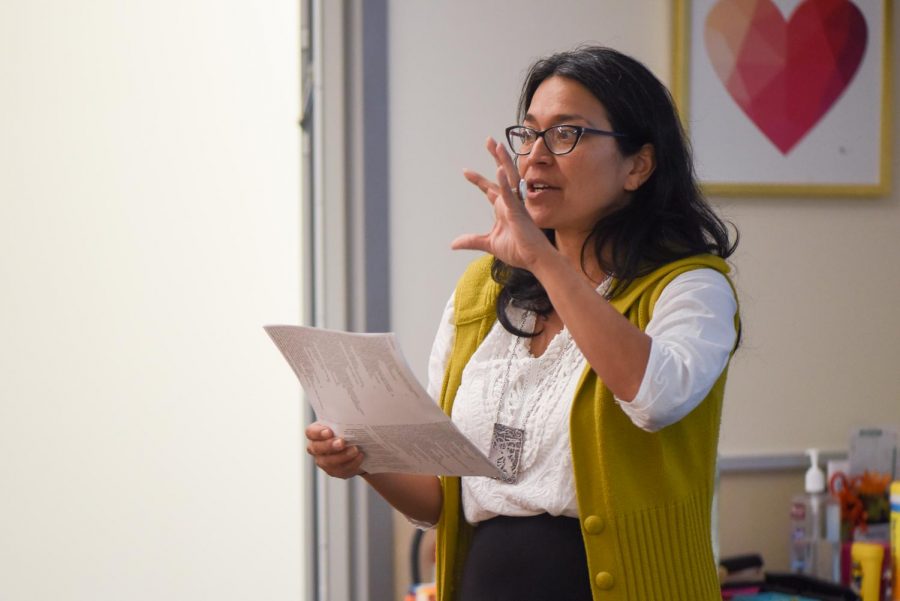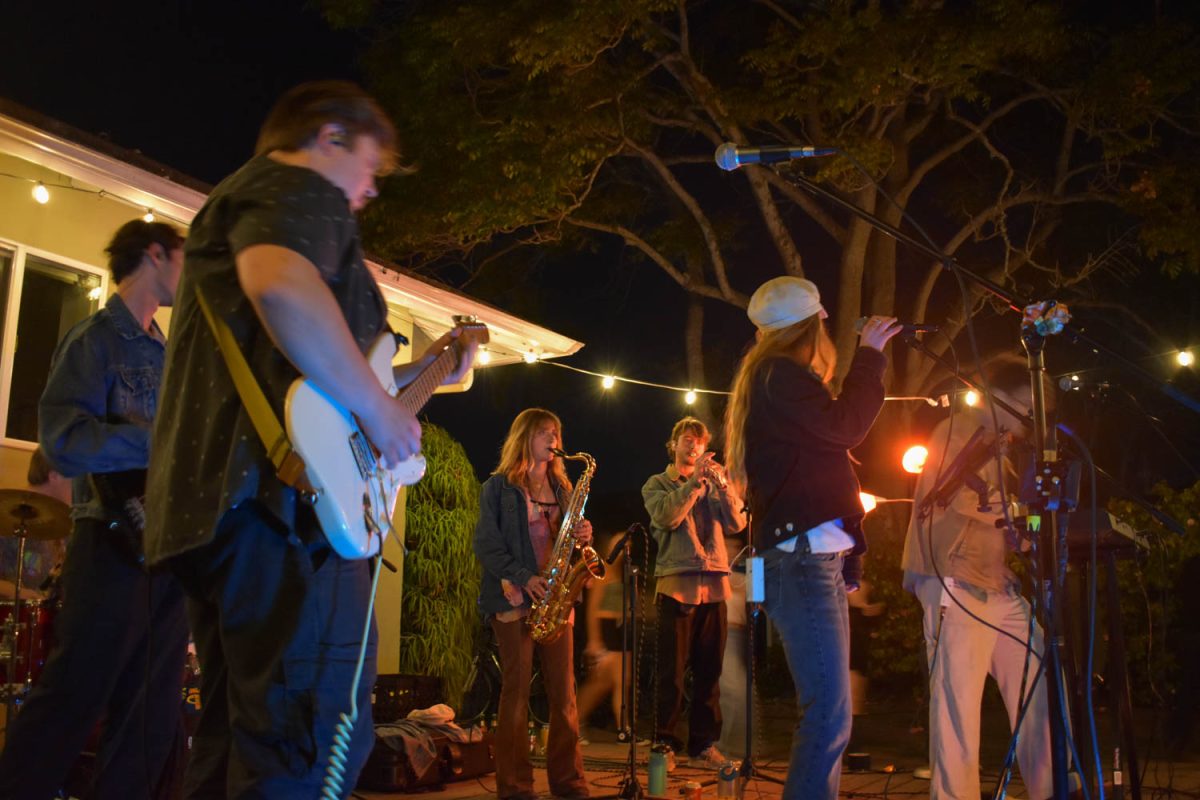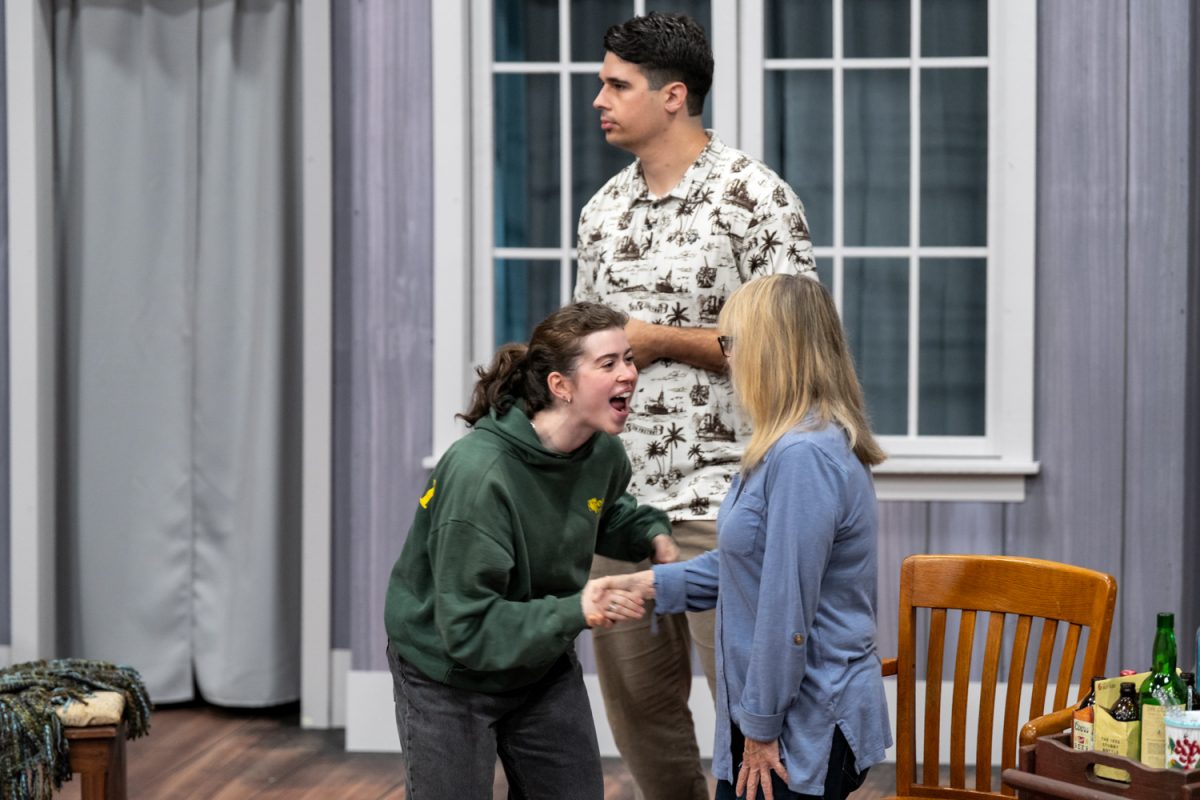Students gathered in City College’s Equity Center Wednesday as Professor Melissa Menendez discussed the use of poetry as an empowering tool for political expression.
Since 1996, April has been deemed National Poetry Month, a month to celebrate poetry and increase awareness and appreciation for poetry.
The month consists of many events in schools, libraries and bookstores all over the nation.
Due to the current rigid division of America’s politics, the Center of Equity and Social Justice celebrated National Poetry Month by welcoming Menendez to lead a “poetry as political expression” lecture where she engaged attendees in conversation on how poetry can be used to empower others.
Menendez said a lot of poetry is about processing and reflection.
“Through that processing is how we get this expression and understanding,” Menendez said. “It can start to become a catalyst for not just sitting in the pain or sitting in that space but then also to change and to act and to inspire.”
Menendez talked about how the form and punctuation of a poem can reveal how the poet wants to share their ideas by formulating a specific layout.
Alternatively, watching someone perform a poem can be an entirely different experience as the poet can use specific rhythms and tones to get their message across.
Menendez demonstrated this by sharing examples of poems that illustrate political expression. Some of these poems included the performances of “Honest Speech” by Erin Schick and “Blink Your Eyes” by Sekou Sundiata.
Both of these poems used repetition and rhythm to empower and express the author’s views in a powerful way, Menendez said.
“[“Honest Speech”] really speaks to this concept of voice equalling empowerment and why we need to use our voices and why they need to be heard and it doesn’t matter what voice it is that you use,” Menendez said.
Other poems Menendez shared and examined during her lecture addressed political issues such as police brutality, the conflict around the Dakota Access Pipeline, racial profiling, Japanese internment camps in 1942 and LGBT identities and discrimination.
“A lot of poems are there to resist something,” Menendez said.
A big theme in Menendez’s discussion was about the way poetry empowers people and influences them to want to do something about injustices.
“[There is] that notion of action, activism, change, challenge,” Menendez said while discussing “As Ferguson Burns” by Angel Butts. “That notion of wanting to go off the couch and onto the street and do something about what is going on.”
The Center for Equity and Social Justice puts on many more events similar to this throughout the year and is open to all students during its drop-in hours from 10 a.m. to 3 p.m. Monday through Thursday in West Campus Center Room 207.










![Milton Alejandro Lopez Plascencia holds a flag showcasing the United States and Mexico on Feb. 7 in Santa Barbara, Calif. “It’s heartbreaking to see what is happening all across the country,” Lopez Plascencia said. “I [want] my voice to be heard by the community.”](https://www.thechannels.org/wp-content/uploads/2025/05/MGSImmigration-1-1200x800.jpg)




